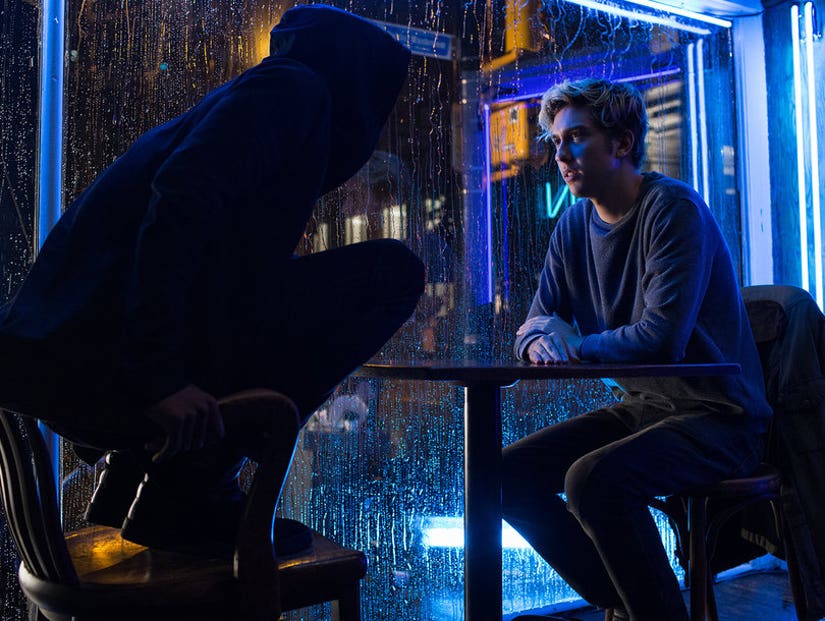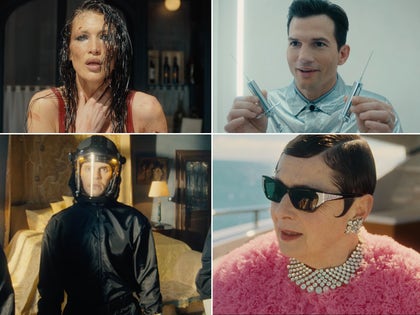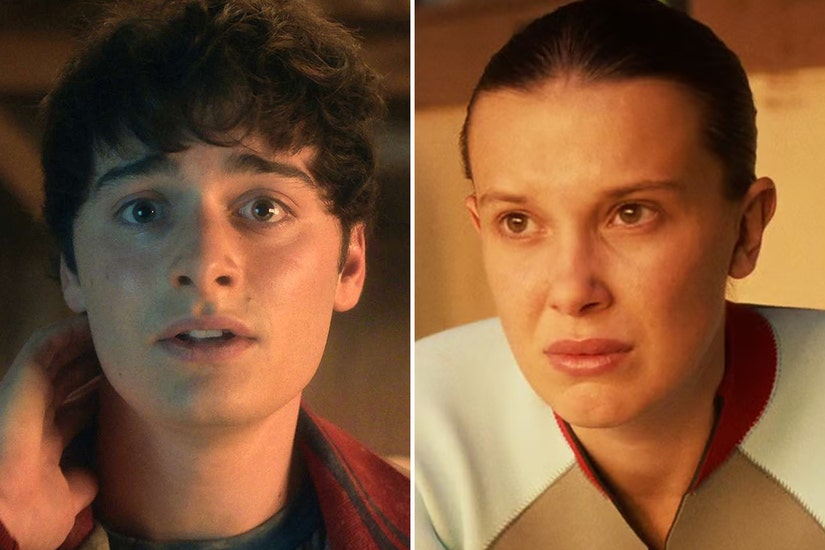It was, in principle stupid alone, very stupid to whitewash the Netflix adaptation of "Death Note." The hit manga and anime series is very Japanese, with mythology and themes borrowed from Japanese folklore and modern day social issues. Setting it in Seattle immediately took away that important element. Strike one.
And while the core concept — a teen finding a supernatural notebook that allows him to kill anyone he wants just by writing their name in its pages — might still be good enough to pull off with some great plotting and casting, director Adam Wingard whiffed on that one, too.
The lead character of "Death Note" is named Light Yagami. He's a whip-smart, rebellious teenager with an uncompromising view of good and evil (even as he crosses that line himself). And yet, Wingard decided to cast Nat Wolff, who is about as charismatic and threatening as a glass of skim milk, and then give him ridiculous blonde streaks in his hair, making him look as if he was the wimpy manager of a Hot Topic circa 2007. This isn't just whitewashing, it's straight up bleaching; Light Turner, as he is now known, is entirely devoid of any actual character.
 Instagram
Instagram
'I'm Alone': Lady Gaga Breaks Down and Addresses Madonna Feud in Emotional Netflix Documentary
View StorySo that's two strikes against the movie, and we haven't even gotten to the actual movie yet.
The basic story, without spoiling it, goes like this: angsty high school student Light finds the notebook. He meets Ryuk, the demon keeper of the book played in impressive motion capture by Willem Dafoe, who is one of the film's highlights. Under Ryuk's influence, Light initially uses the book to kill a bully and impresses his crush Mia (Margaret Qualley). Then things start to go off the rails: He's already started taking down local criminals, including his mother's murderer, and once Mia joins up, they start going after terrorists and other people on the most-wanted list.
The world starts to take notice, and to stay anonymous, they invent a character named Kira who takes responsibility for the murders. The twist is that Light's dad (Shea Wigham) is a detective with the Seattle police department, and winds up getting roped into the hunt for this fictional Kira. Obviously, it's all happening right under his nose, but why expect your own son of being a murderous demigod? He's joined in his police work by a mysterious genius detective named L (LaKeith Stanfield), who has unconventional methods. He's another one of the movie's highlights; with each performance, from "Atlanta" to the upcoming indie film "Crown Heights," he shows more range and depth.
 Marvel/Netflix
Marvel/Netflix
It's a Marvel How Boring Netflix's 'The Defenders' Is
View Story"Death Note" tries to reduce into one two hour movie a comic book series that ran for 108 chapters and 37 episodes of television. That's a lot to get through in just a little bit of time, and while Wingard does a good job of translating complicated details into digestible nuggets that don't overwhelm the viewer, it still feels like we're spending half the time learning the many rules governing the Death Note, as the murder notebook is called. And because the explanations are rolled out throughout the movie as needed, every new rule, and its attendant plot development, feels like deus ex machina.
Ultimately, "Death Note" isn't awful, but there's no real point of watching it. If you care about the story, and want to think about the moral dilemma it presents, read the manga or watch the anime. This live action version won't satisfy cultural curiosity or any thirst for good action, and mostly just leaves you wondering why they made this in the first place.
 Getty
Getty





















